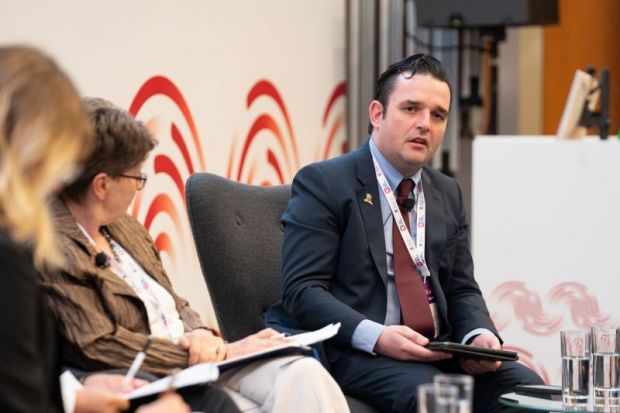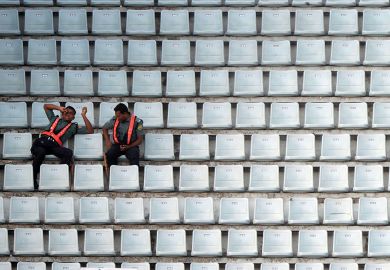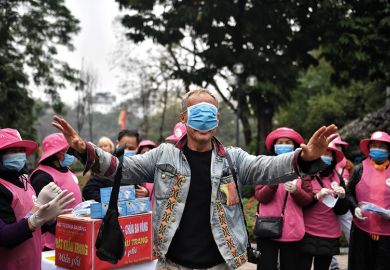University leaders have expressed deep-seated unease about the way in which some Western institutions approach collaboration with their Asian peers.
Experts addressing Times Higher Education’s Asia Universities Summit said that Western institutions’ intention of forging meaningful, high-impact partnerships with Asian partners was often undermined by a prestige-growing agenda.
Laurie Pearcey, associate vice-president for external engagement at the Chinese University of Hong Kong (CUHK), said that all too often, the noble aims put forth in a partnership strategy don’t make it past a nascent stage.
“Many of us have stayed in those rooms before where you might have a bold, ambitious, altruistic strategy set by a visionary vice-chancellor,” he said.
The majority of these efforts, though, fall flat.
“Once it gets down to…the organisation’s rank and file, you have research divisions, you’ve got senior academics, and you say, ‘Well, why would I want to go to the universities sitting on the west coast of India?’”
Mr Pearcey said that, behind closed doors, the sentiment on partnering with lesser-known institutions, especially those located outside the Western world, tended to be, “What’s in it for me?” This was something that he said sat very uncomfortably with him.
While highly ranked Western institutions tended to look for similar status in their partners, on the flipside, there is also a concerning pattern of wealthier Western universities offering joint degrees with their lesser resourced peers – but ultimately contributing to brain drain from them.
He criticised the approach by Western institutions that have expanded into Asian markets as a means of driving up revenue from student fees – which subsidises their research, in turn boosting their standing in league tables.
“This is something that that I think is a real, a real ethical crisis to the way in which we think about ourselves as universities,” he told the summit, held at CUHK. He urged the sector to “have a good, hard look at ourselves”.
Christine Ennew, provost at the University of Warwick, echoed the sentiment, noting there were “significant issues” around Western universities’ recruitment strategies.
She said part of the problem had to do with institutions chasing top positions in global rankings.
“I think the tables are hugely valuable. They help us to understand where we are…help us benchmark what helps us succeed,” she said. “But we should not be operating on the basis that our purpose is to get to the top 50, the top 30, the top 20.”
Instead, she suggested universities need to be more creative and responsible in forming new ties. “It’s got to be a relationship that complements and make sure that…both parties…benefit from the relationship,” she said.
Jianguo Chen, vice-president of international affairs at Huazhong University of Science and Technology, said that despite these issues, institutions like his can find like-minded Western partners, provided they look for the right qualities.
Sharing common features, such as a similar mission, footprint or areas of focus, can help cement a partnership, making sure it lasts well beyond its first year. He said that his university’s experience, following analysis of its collaborations, yielded positive results.
“Usually,” he said, “the cooperation is successful.”
Register to continue
Why register?
- Registration is free and only takes a moment
- Once registered, you can read 3 articles a month
- Sign up for our newsletter
Subscribe
Or subscribe for unlimited access to:
- Unlimited access to news, views, insights & reviews
- Digital editions
- Digital access to THE’s university and college rankings analysis
Already registered or a current subscriber? Login










